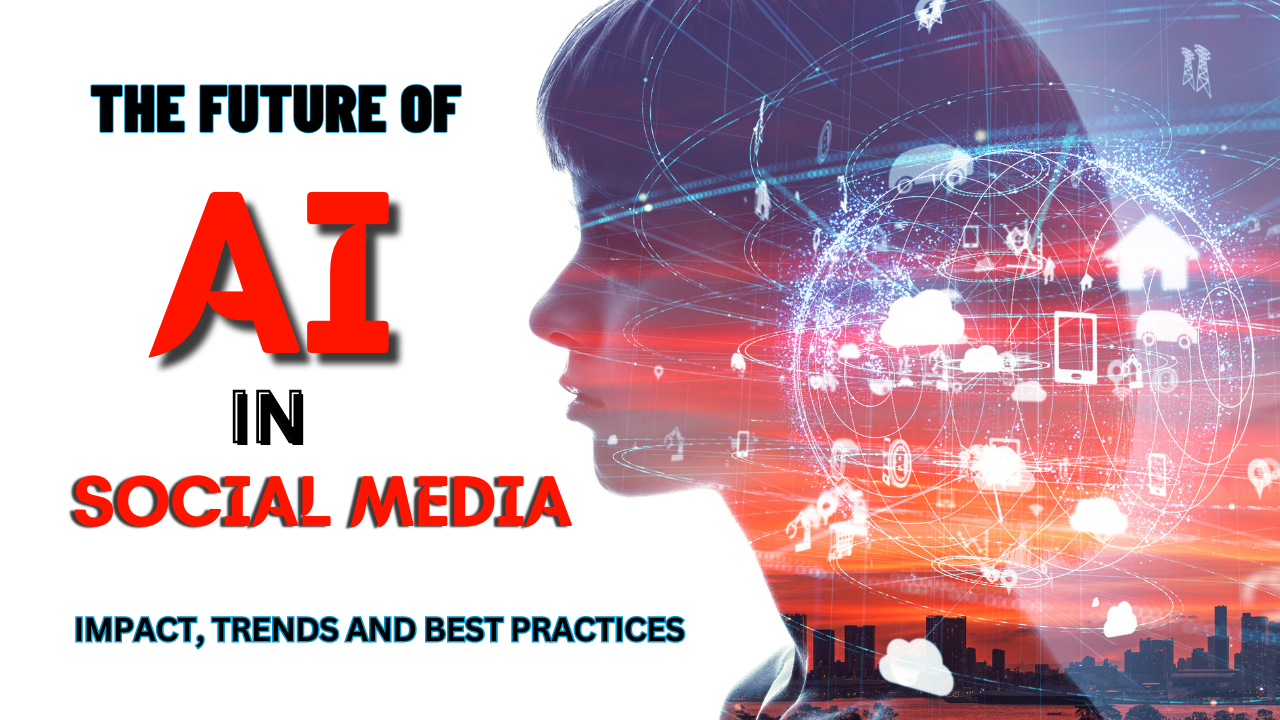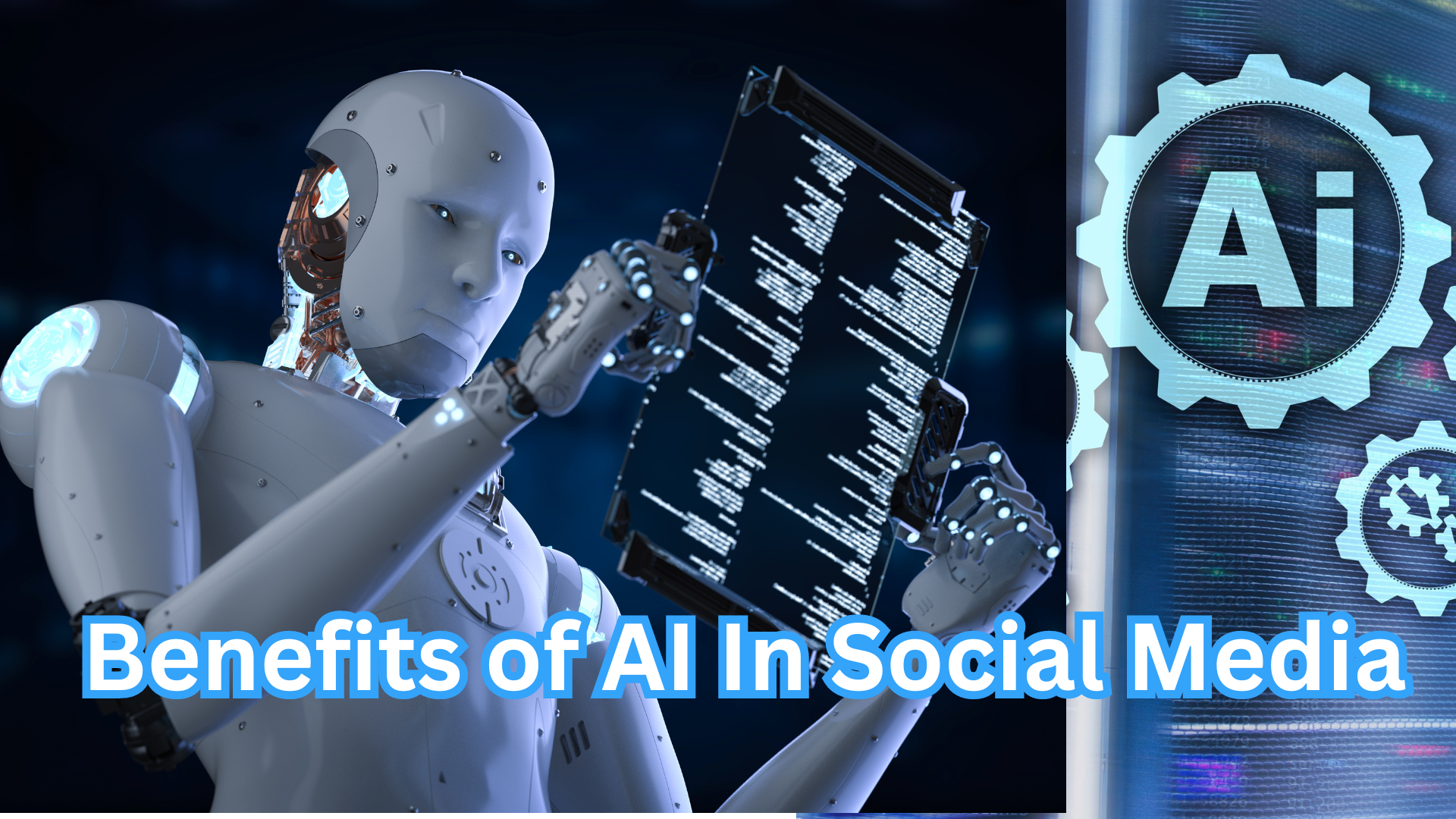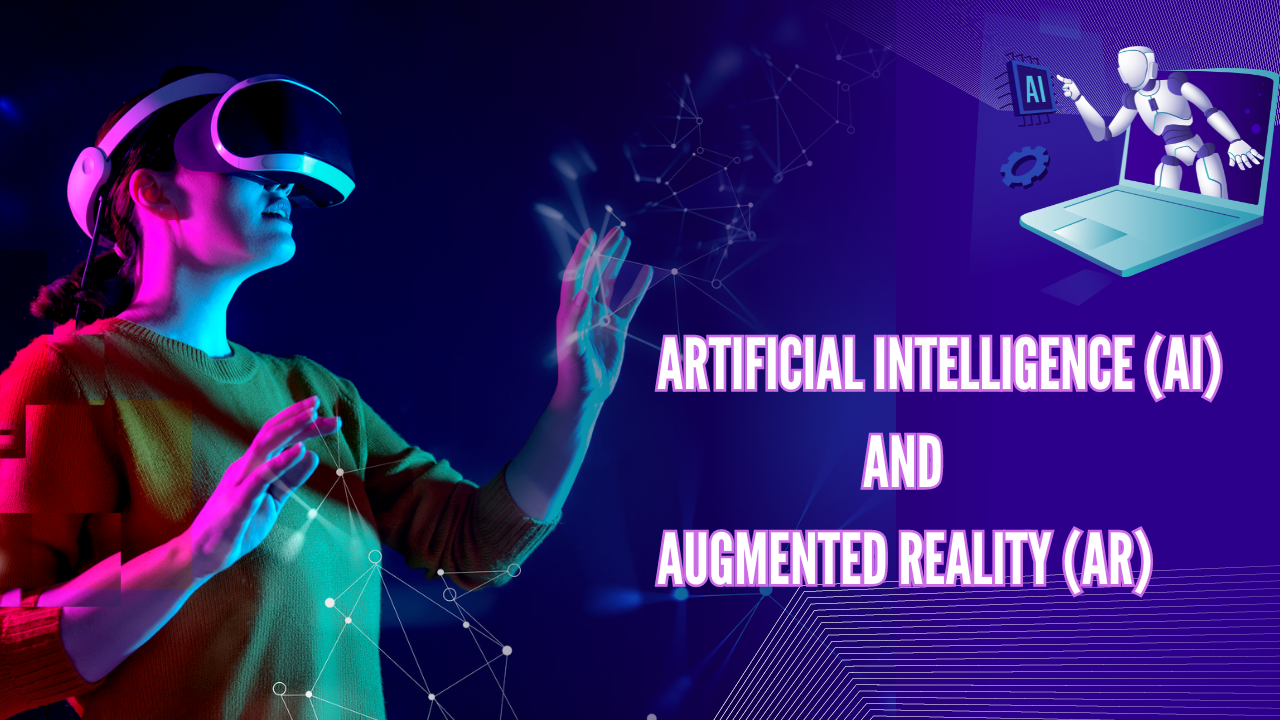
Artificial Intelligence (AI) is revolutionizing various aspects of our lives, and social media is no exception. The integration of AI into social media platforms has brought about a significant transformation in how we interact, share, and consume content. As platforms evolve and user expectations shift, understanding the role of AI becomes crucial for marketers and content creators alike. But what does the future hold for AI in social media? Why should we care? This article delves into the myriad ways AI is set to shape the social media landscape, offering a glimpse into an exciting future.
Introduction of AI and How does it affect Social Media?
AI encompasses technologies that simulate human intelligence in machines. In social media, AI is leveraged to analyze vast amounts of data and automate tasks traditionally performed by humans. This includes sentiment analysis, content personalization, and even generating content itself.
Sentiment Analysis
AI-powered sentiment analysis allows brands to gauge public opinion about their products or campaigns swiftly and accurately. By analyzing social media posts, comments, and reviews, AI can detect sentiment trends and help marketers make data-driven decisions.
Content Personalization
Personalized content is key to engaging audiences in today’s crowded social media landscape. To customize content recommendations, AI systems examine user behavior, preferences, and interactions. This boosts conversion rates for businesses in addition to improving the user experience.
AI-Generated Content
AI tools are now capable of generating written content, graphics, and even videos. This automation streamlines content creation processes, enabling marketers to produce large volumes of high-quality material and advanced digital marketing strategy efficiently.
AI-Powered Chatbots
Chatbots equipped with AI algorithms provide instant customer support and engagement on social media platforms. They can answer queries, provide recommendations, and even complete transactions, enhancing customer satisfaction and retention.
Benefits of AI In Social Media

AI-Driven Personalization
One of the most impactful uses of AI in social media is personalization. However, to customize content recommendations, AI systems examine user behavior, preferences, and interactions. Ever noticed how your Instagram feed shows exactly what you like? That’s AI at work. Similarly, personalized ads ensure that users see products and services that genuinely interest them, making advertising more effective and less intrusive.
Enhanced User Experience
AI enhances user experience on social media in several ways. AI-powered chatbots provide instant customer service, answering queries and resolving issues around the clock. These chatbots simulate human-like conversations, ensuring users feel heard and valued. Predictive analytics, another AI application, helps social media platforms anticipate user needs and preferences, making interactions more engaging and satisfying.
Content Creation and Curation
Creating and curating content is a time-consuming task. AI simplifies this by automating content generation, allowing social media managers to produce high-quality posts with minimal effort. AI tools can also assist in video and image editing, offering suggestions and automating processes to save time and however enhance creativity. Imagine AI generating captivating captions or editing videos to perfection – the possibilities are endless.
Social Media Monitoring and Analytics
AI excels in monitoring social media activities and providing insightful analytics. Sentiment analysis, for instance, helps brands understand public opinion by analyzing comments, likes, and shares. Moreover, this allows companies to gauge their online reputation and respond proactively. While trend prediction, powered by AI, enables businesses to stay ahead of the curve by identifying emerging trends and capitalizing on them early.
Improving Security and Privacy
In the digital age, security and privacy are of utmost importance. AI plays a crucial role in detecting fake news and misinformation, However, ensuring that social media platforms remain credible and trustworthy. Machine learning algorithms can identify patterns associated with false information, flagging or removing such content. Additionally, AI helps protect user data by identifying and mitigating potential security threats, providing a safer online environment.
Influencer Marketing
Influencer marketing is a significant aspect of social media strategy. AI assists in identifying and evaluating influencers by analyzing engagement metrics, audience demographics, and content relevance. Predictive analytics can also forecast an influencer’s potential success, enabling brands to make informed decisions about collaborations. This targeted approach maximizes the return on investment for influencer campaigns.
AI and Augmented Reality (AR)

The combination of AI and AR is creating immersive social media experiences. AI enhances AR by providing real-time data and personalization. For example, AI-driven AR filters on Instagram and Snapchat adapt to user interactions, creating unique and engaging experiences. Furthermore, AI-powered AR advertising offers innovative ways to capture user attention, making ads more interactive and memorable.
Voice and Visual Search
Voice and visual search capabilities are on the rise, thanks to AI. Voice search allows users to find content using natural language, making searches more intuitive. However, visual search, powered by image recognition technology, enables users to search for products and information using images. This is transforming how we interact with social media, making it more accessible and user-friendly.
Future Trends and Predictions
AI in social media has a bright future ahead of it. Emerging AI technologies, such as generative AI and advanced machine learning models, promise to bring even more sophisticated features. These advancements could lead to more personalized and interactive social media experiences, revolutionizing how we connect and communicate online. Therefore, the potential impact on social media platforms is immense, with AI driving innovation and growth.
Case Studies
Examining real-world applications of AI in social media provides valuable insights. Facebook, for example, utilizes AI for content moderation, personalizing news feeds, and enhancing ad targeting. Furthermore, TikTok’s algorithm, another notable example, leverages AI to analyze user behavior and preferences, delivering highly relevant content that keeps users engaged for longer periods.
Ethical Considerations
Although artificial intelligence has many advantages, there are ethical questions. Discrimination and unfair treatment may result from bias in AI algorithms. Moreover, ensuring transparency in AI operations is crucial to build trust among users. Social media platforms must address these issues by developing ethical AI practices that prioritize fairness and accountability.
Business Implications
For businesses, adopting AI strategies in social media marketing is essential for staying competitive. AI solutions can streamline marketing efforts, making them more efficient and cost-effective. From automated content creation to precise audience targeting, AI offers tools that can significantly enhance ecommerce trends and marketing outcomes. Businesses must embrace AI to harness its full potential and drive growth.
Current Trends in AI and Social Media
AI-driven content personalization ensures that users receive tailored recommendations and relevant updates, enhancing engagement and satisfaction. Chatbots are becoming indispensable for customer service, offering instant responses and handling queries effectively. Additionally, AI-powered influencer marketing is optimizing brand collaborations, matching influencers with the right audience segments seamlessly.
Impact of AI on Social Media
The integration of AI has significantly enhanced user experiences by predicting preferences and streamlining interactions. However, concerns over data privacy persist, prompting discussions on ethical AI usage and stringent security measures. Furthermore, AI algorithms are reshaping social media advertising by targeting audiences with precision and maximizing ad spend efficiency.
Best Practices for Leveraging AI in Social Media
To effectively harness AI’s potential, businesses should focus on integrating AI tools that enhance user interactions and streamline operations. However, ethical considerations must be prioritized to maintain trust and transparency with users. Looking forward, continuous adaptation and innovation will be key in leveraging AI to its fullest extent in social media marketing strategies to increase sales.
Challenges and Limitations
Despite its advantages, AI in social media faces several challenges. Technical limitations, such as the need for large datasets and computational power, can hinder AI performance. Additionally, user acceptance and trust are critical for AI’s success. Hence, Social media platforms must address these challenges by improving AI technologies and ensuring they are user-friendly and trustworthy.
Negative Impact of AI On Social Media
While AI offers numerous benefits, it also raises significant concerns that need addressing:
Privacy Concerns
The use of AI in social media raises privacy issues regarding data collection, usage, and user consent. However, stricter regulations and transparent policies are essential to mitigate these concerns.
Content Moderation
AI-powered content moderation algorithms can sometimes struggle with nuanced contexts, leading to inconsistent enforcement of platform policies.
Mental Dejection
Constant exposure to AI-curated content tailored to individual preferences can create filter bubbles, limiting users’ exposure to diverse viewpoints and additionally contributing to mental health issues like anxiety and depression.
Algorithmic Bias
AI algorithms are susceptible to biases inherent in training data, additionally leading to discriminatory outcomes in content recommendation and ad targeting.
Manipulation
Bad actors can exploit AI algorithms to spread misinformation, manipulate public opinion, and deceive users, undermining the integrity of social media platforms.
Polarization
AI-driven content algorithms may unintentionally reinforce polarization by amplifying extreme viewpoints and divisive content.
Conclusion
However, The future of AI in social media is bright, with endless possibilities for enhancing user experiences, improving security, and driving business success. As AI technologies continue to evolve, they will transform how we interact with social media, making it more personalized, engaging, and secure. Hence embracing AI in social media is not just an option but a necessity for staying ahead in the digital age.
